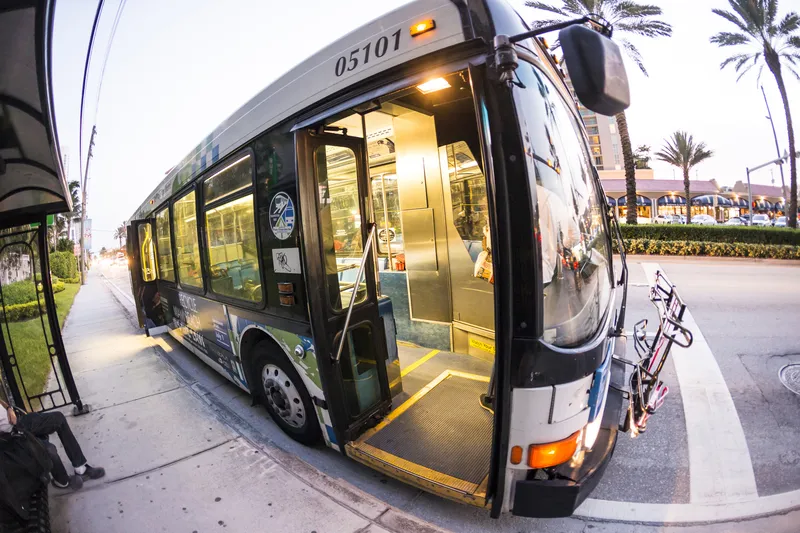Detroit, the historic home of the US automotive industry, is to get a new streetcar rail system to help drive the economic revival of Motor City. M-1 Rail, the organisation overseeing the US$140 million project, has been pursuing an aggressive timetable toward a late 2015 service launch. “We are now jumping out of the gate,” says Heather Carmona, M-1 Rail’s chief administrative officer. Final design could be completed by mid-August and, depending on when the necessary permits are secured, construction coul
June 12, 2013
Read time: 3 mins
Detroit, the historic home of the US automotive industry, is to get a new streetcar rail system to help drive the economic revival of Motor City.
M-1 Rail, the organisation overseeing the US$140 million project, has been pursuing an aggressive timetable toward a late 2015 service launch.
“We are now jumping out of the gate,” says Heather Carmona, M-1 Rail’s chief administrative officer. Final design could be completed by mid-August and, depending on when the necessary permits are secured, construction could start by early autumn, she says.
M-1 Rail officials also are evaluating their approach to securing the six streetcars the system will use. Later this year, they expect to send out a request for proposals for construction of a storage and maintenance facility.
The circulating streetcar — which has yet to be named — will initially operate along Woodward Avenue from the city’s downtown to the midtown area, then on to the New Center and North End areas. The project has been in the planning stages since 2007, when a consortium of local business, philanthropic and community officials concluded Detroit’s status as a transit-challenged city had to change as part of a broader plan to stimulate the city’s economy, attract new residents and retain a younger generation of workers.
About two-thirds of the streetcar line’s costs will be covered by private funds; the remainder will come from federal, state and local grants, and in January, US Transportation Secretary Ray announced that the324 US Department of Transportation would provide US$25 million to M-1 Rail, as well as another US$6.5 million for engineering and studies for a regional transportation system under the area’s new Regional Transit Authority.
“This can become a model for the rest of the country, where a community has come together in one of the hardest economic times in US history and put together a program that will benefit its people,” LaHood said of M-1 Rail’s public-private partnership.
Expectations are high for what the streetcar line might do for Detroit’s continuing efforts toward urban renewal. M-1 Rail officials see it as the future centerpiece of a seamless transit system that will connect people to jobs, retail, sporting and cultural activities. About US$500 million to US$1 billion worth of economic development is anticipated along the Woodward Avenue corridor, and streetcar ridership is estimated at 5,000 to 8,000 passengers per day, they say.
M-1 Rail, the organisation overseeing the US$140 million project, has been pursuing an aggressive timetable toward a late 2015 service launch.
“We are now jumping out of the gate,” says Heather Carmona, M-1 Rail’s chief administrative officer. Final design could be completed by mid-August and, depending on when the necessary permits are secured, construction could start by early autumn, she says.
M-1 Rail officials also are evaluating their approach to securing the six streetcars the system will use. Later this year, they expect to send out a request for proposals for construction of a storage and maintenance facility.
The circulating streetcar — which has yet to be named — will initially operate along Woodward Avenue from the city’s downtown to the midtown area, then on to the New Center and North End areas. The project has been in the planning stages since 2007, when a consortium of local business, philanthropic and community officials concluded Detroit’s status as a transit-challenged city had to change as part of a broader plan to stimulate the city’s economy, attract new residents and retain a younger generation of workers.
About two-thirds of the streetcar line’s costs will be covered by private funds; the remainder will come from federal, state and local grants, and in January, US Transportation Secretary Ray announced that the
“This can become a model for the rest of the country, where a community has come together in one of the hardest economic times in US history and put together a program that will benefit its people,” LaHood said of M-1 Rail’s public-private partnership.
Expectations are high for what the streetcar line might do for Detroit’s continuing efforts toward urban renewal. M-1 Rail officials see it as the future centerpiece of a seamless transit system that will connect people to jobs, retail, sporting and cultural activities. About US$500 million to US$1 billion worth of economic development is anticipated along the Woodward Avenue corridor, and streetcar ridership is estimated at 5,000 to 8,000 passengers per day, they say.








